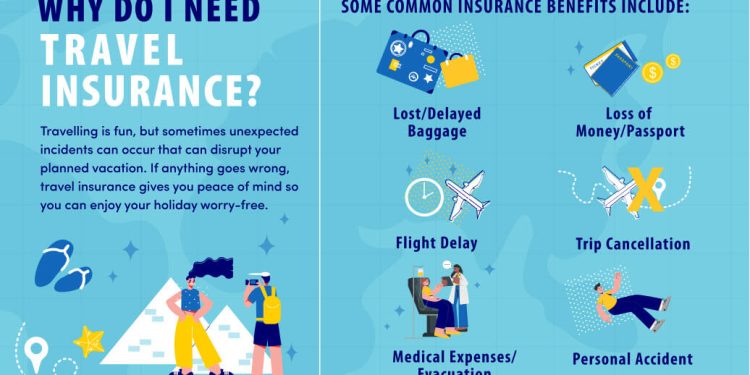If you travel frequently, you have unavoidably been given the option to get travel insurance, but without much knowledge about it, you can’t really tell if it’s a decent deal or a scam. Anytime you take a lot of trips, you run the danger of suffering a financial or bodily loss. When weighing your options, there are a few things you should know about travel insurance in order to help you make a more informed choice.
Basics of travel insurance
Traveling is always fraught with dangers, including the chance of becoming ill or getting into an accident, losing or having your possessions stolen, missing flights, and in the worst situations, even losing your life. By lowering your risk of suffering financial loss due to these hazards, travel insurance can help you relax. There are five primary forms of travel insurance available, but you may also purchase additional policies to cover certain issues like identity theft. A combined international travel insurance plan can be purchased that includes the majority of these various travel insurance options:
- Flight insurance: Also known as “flight insurance,” this type of coverage protects you in the event that your aircraft crashes while you are travelling.
- Baggage insurance: Insurance for lost, stolen, or damaged luggage that occurs during a trip or flight is known as baggage insurance. The majority of package travel insurance packages contain it. Jewellery, electronics, and other pricey items can be subject to exclusions or price limits.
- Trip interruption/cancellation insurance: It will pay for your expenses if your trip is cut short due to unforeseeable circumstances, such as health problems or the cancellation of a pre-paid excursion. Your trip’s non-refundable costs are covered by the insurance. This kind of insurance can also protect you if you have to cancel a vacation due to bad weather or an accident.
- Medical insurance: Medical travel insurance can help cover deductibles or “out-of-network” provider costs that your current health insurance does not cover if you are travelling internationally. This kind of health insurance typically picks up and pays your medical costs that your primary insurance plan does not.
- Insurance for Evacuations: If you acquire evacuation insurance, it will pay for the expense of getting you to a hospital where you can get the necessary care in the event of an emergency. Although there may be additional supplemental insurance available to cover sports adventure activities, this sort of policy is subject to exclusions for risky activities like skydiving.
Who should purchase travel insurance?
Companies that only write travel insurance include Travel Guard, Tin Leg, Travelex, and other insurance providers. You can also be given the option to get travel insurance if you rent a car or purchase a vacation package from a travel agency. Travel insurance could be a smart idea for someone who travels frequently and wants the assurance that they are protected in the event that the worst occurs while they are away. However, purchasing travel insurance can be a waste of money if you don’t travel much or already have coverage through another sort of insurance policy.
Only you can decide whether the cost of international travel insurance is justified by the security of knowing that you are guarded against the monetary risk involved with travelling. Take the time to shop around and find the greatest deal on insurance coverage if you travel frequently and want to ensure that you are covered.
Make sure that you are not already protected against travel-related hazards by an existing insurance policy. If you decide to buy travel insurance, make sure you read the fine print to understand what and who is covered, as well as the monetary amount of the per-claim and policy term restrictions.
Insurance is the subject matter of solicitation. For more details on benefits, exclusions, limitations, terms, and conditions, please read the sales brochure/policy wording carefully before concluding a sale.








































